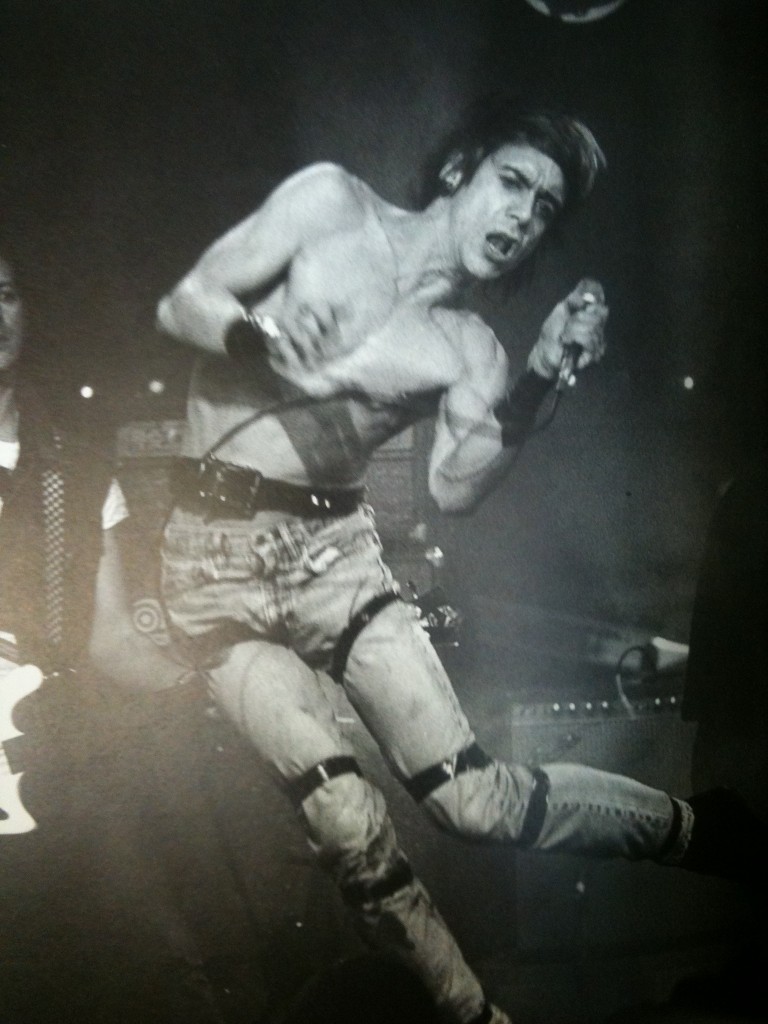Abandonment (from Correspondence with Babak Ghazi) by Beatrice Schulz
|
On Wed, Mar 28, 2012 at 12:41 AM, Be A Trice <trixie.loftschulz@gmail.com> wrote: Yes, a certain amount of abandonment is necessary, but if my immediate reaction is one of indifference then I end the kiss before I have had time to think about it. I do not make the decision to end it, I have not even thought about it, the thought of abandonment can only come afterwards. I cannot choose to abandon myself, for the moment of abandonment always comes before any decision or act of will. ‘Also ist est stets besser, ein wenig hungrig zu sein / Auf diese Weise widersprichst du der Notwendigkeit’ Agnes Martin Satiety is a kind of stagnation. As Kant observes, ‘hunger is the best sauce’ and people with a healthy appetite will eat almost anything without making any judgements. Need must be satisfied before taste is possible. But it is better to be a little bit hungry. Taste requires a certain restraint from over-indulgence in the agreeable, for although being ravenous is not a state in which judgements of taste can be made, there must still be some appetite remaining, there must be a sensitivity which is possible only when a little bit hungry. Those who have taste must be insatiable, for it is the tongue that tastes, not the stomach, and the tongue always wants more. To not want more, or to be totally indifferent, is to reach a satiety that will send you to sleep. For what else is there to do when one is in such a state of over-indulgence in what is agreeable that even what is agreeable no longer has any interest. When all our energy is consumed in the digestive process we cannot be receptive to the intensity of reflective taste. Hunger is a kind of melancholy that is not satisfied with ordinary food, in which the desire to consume is prolonged by the constant edge of hunger.
On Mon, Mar 26, 2012 at 11:07 PM, Be A Trice <trixie.loftschulz@gmail.com> wrote: Do you believe in getting what you want out of life? Or do you believe in abandoning yourself to that towards which you feel indifferent?
On Mon, Mar 26, 2012 at 10:53 PM, Be A Trice <trixie.loftschulz@gmail.com> wrote: In the British Library today someone kissed me but I ended the kiss even though it seemed like the kind of kiss that should have gone on longer. And then someone kissed me again and I moved my face to avoid it, and then we spent a little while standing very close to each other looking and smiling at each other awkwardly. As I walked away I wondered whether I should have abandoned myself to this persons embraces despite feeling indifferent towards them.
On Mon, Mar 26, 2012 at 8:47 PM, Be A Trice <trixie.loftschulz@gmail.com> wrote: I had a kitchen porter from South America who wanted to go bungee jumping and I couldn’t figure out why. Why would you want to go bungee jumping, it’s such a cliche, I thought, it’s the least dangerous way to take a risk in your life, and then you can say, I’m a daring person, who likes to have fun but so what? You are actually risking nothing. I would rather get high on crack for a week than go bungee jumping, but that’s just me. He didn’t last long as a kitchen porter, because he didn’t have a work ethic, he was too middle class, he believed in the emancipation of the human subject. Therefore he didn’t feel suited to working a menial job because he didn’t enjoy it, and every person has a right to a job which they enjoy, don’t they?
On Sun, Mar 25, 2012 at 8:53 AM, Be A Trice <trixie.loftschulz@gmail.com> wrote: Let’s talk about commitment; that picture of Prince Harry at Diana’s funeral; public intimacy. On facebook the way intimacy is made public is so self-conscious, a supposedly private conversation is so aware of its publicness. There’s a girl who I went to school with who posts about what bath products she’s just used, her weight loss plan, her break up; her posts all have the same weight and the same style no matter how trivial or life-changing – and both the trivial and the life-changing are extremely intimate. What does it mean to make an act public – to commit it? I think that’s what art can do, it produces itself and makes a commitment to that way of producing itself and so we are able to believe in it but at the same time there is an awareness that it is based upon a fragile construction that could at any moment fall away. Commitment is acting publicly, it is producing yourself in public, and supposedly the transformative first act of commitment is the social contract, in which we are taken from a ‘savage’ state in which we act only in our own interests to a social state in which it is in our interests to obey the law. But it turns out the ‘savage’ state is just something we made up afterwards to justify the law – as Agnes Martin says ‘Natur ist Eroberung, Besitznahmen, Vermehren’, Nature is conquering, possession, pro-creation. |
